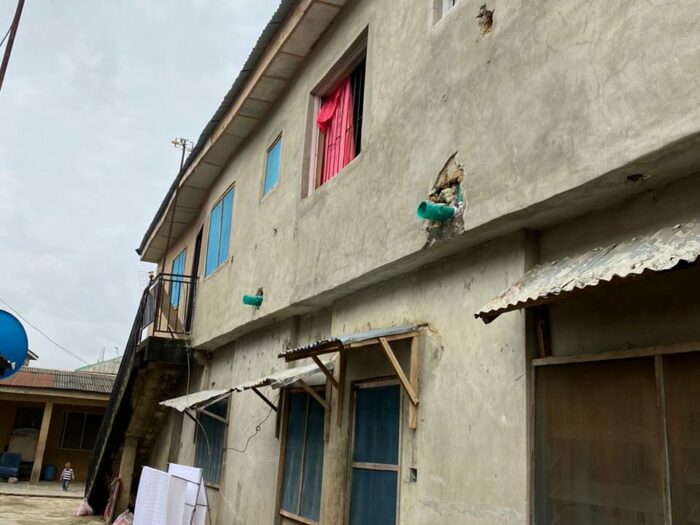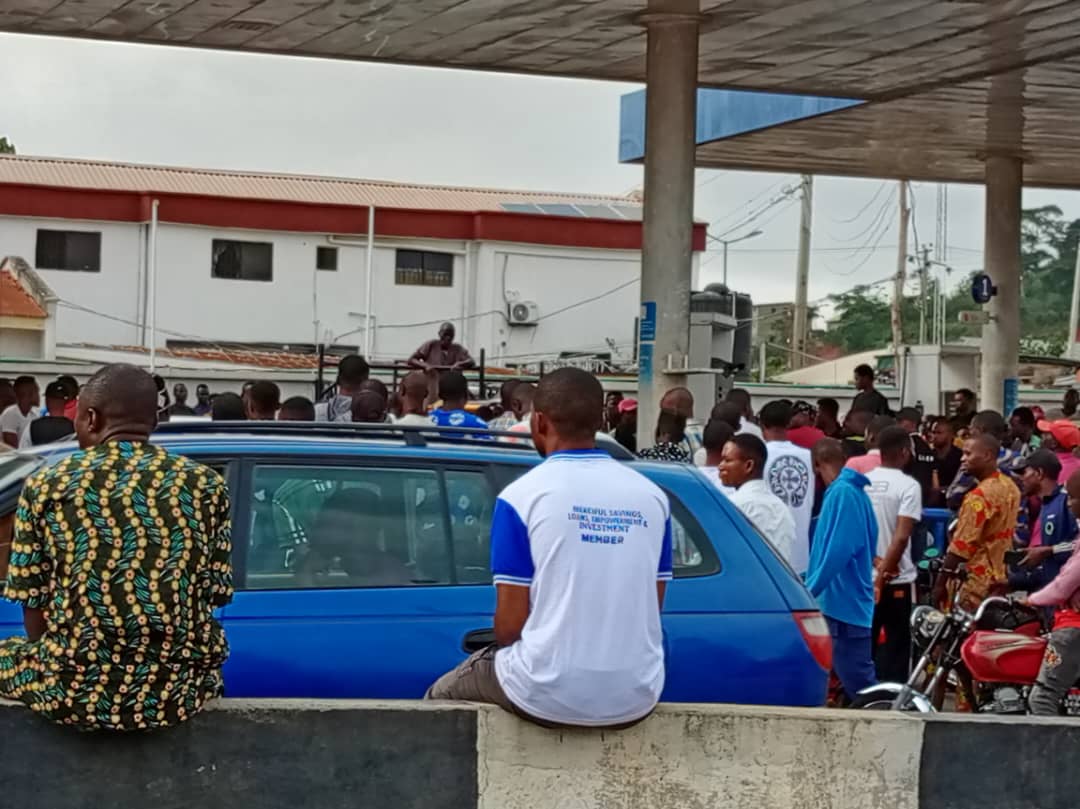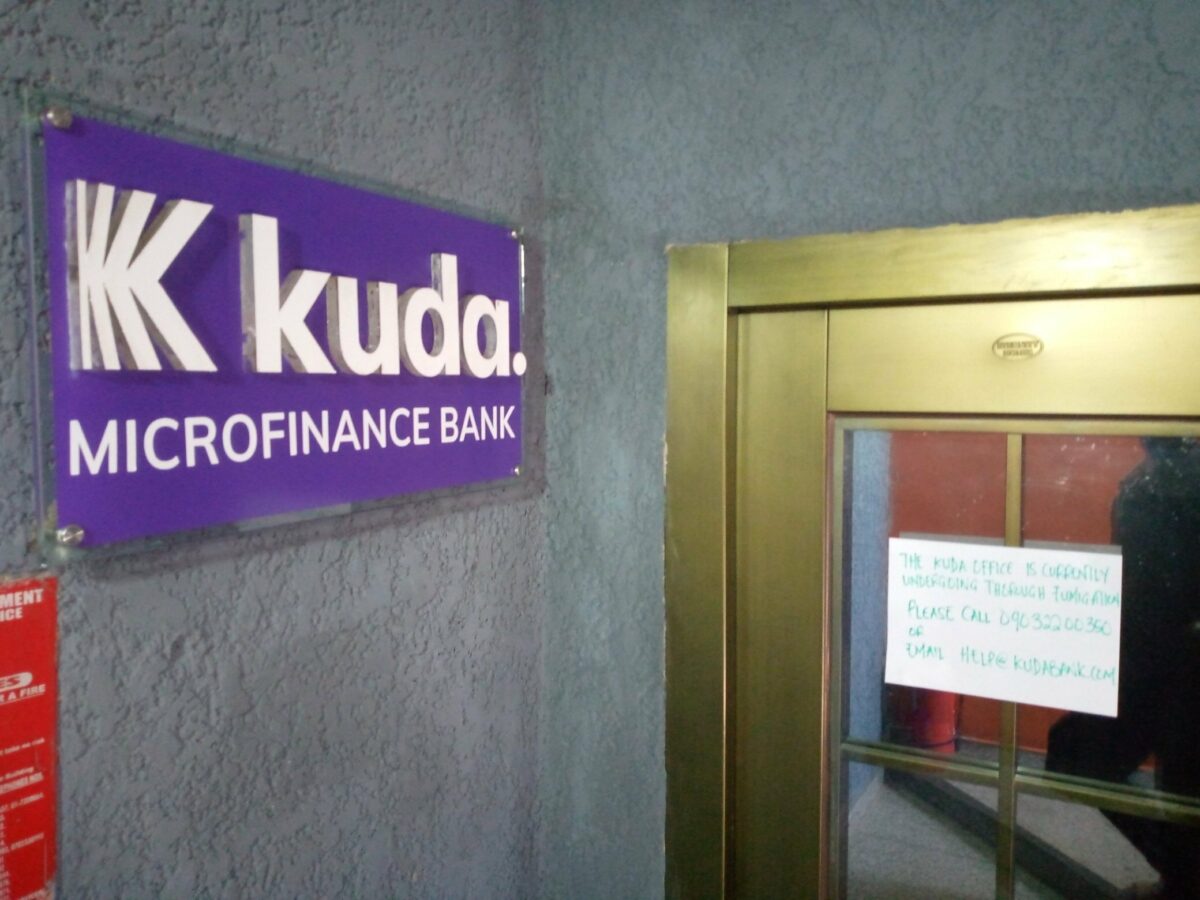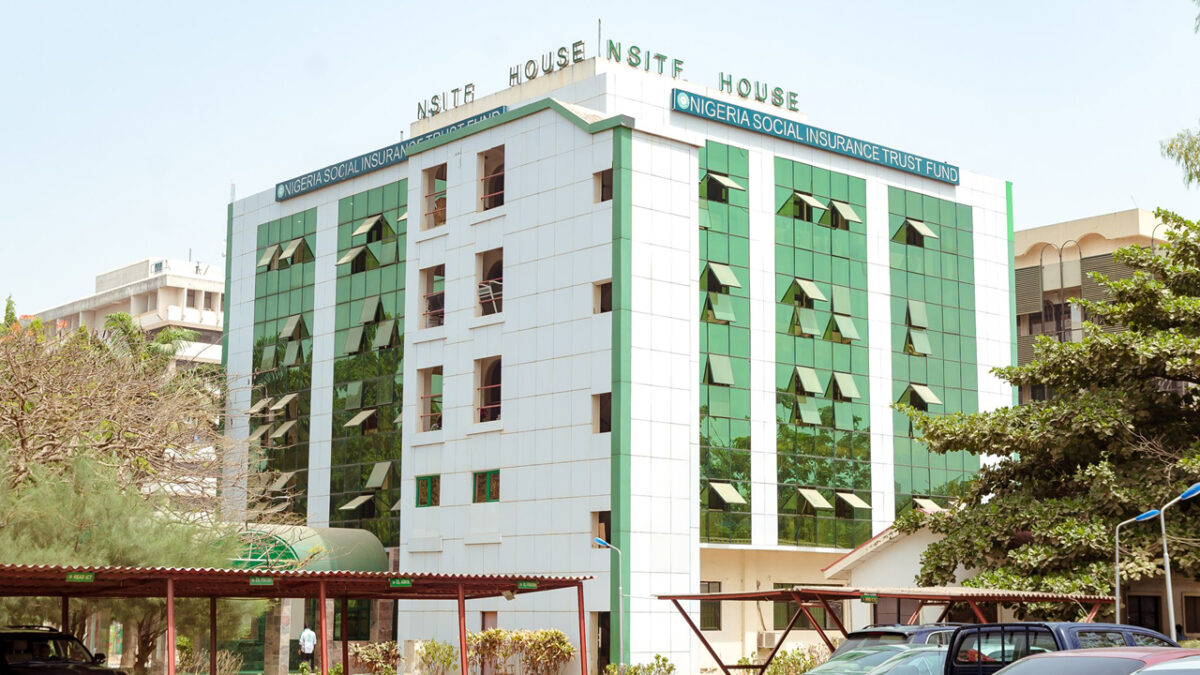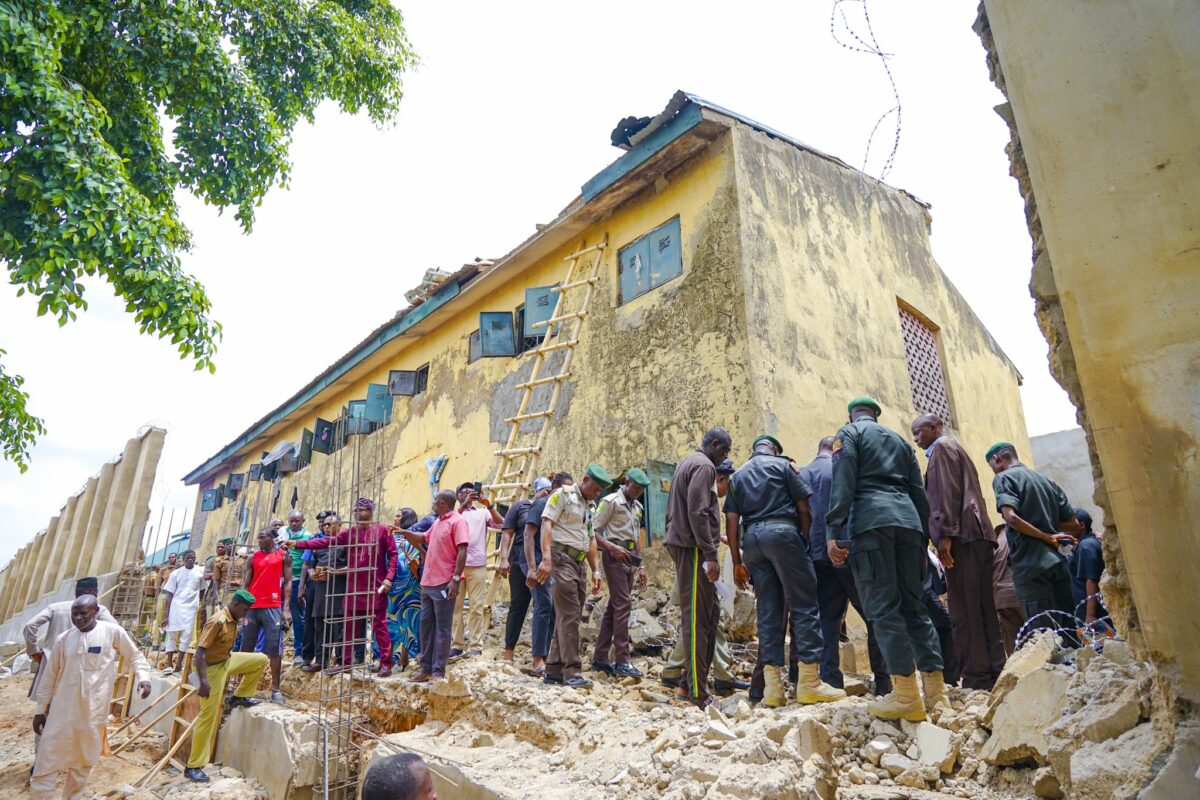The combined construction and real estate industry has been contributing noticeably to Nigeria’s Gross Domestic Product (GDP) since the country’s independence. It is a good portion of the Nigerian economy. The total market size is now estimated to be about $130 billion (International Trade Association, 2023).
Even before the independence, the contribution was not unsubstantial. What the construction sector gave to the GDP ranged from 3 percent to 8 percent from independence to the late seventies, before crumbling to around 1 percent in the eighties. Since then, it has grown in significance. It is a crucial sector for the economy and forms a substantial part of Gross Fixed Capital Formation for Nigeria.
The Gross Fixed Capital Formation (GFCF), formerly known as gross domestic fixed investment) includes land improvements (fences, ditches, drains, and so on); plant, machinery, and equipment purchases; and the construction of roads, railways, and the like, including schools, offices, hospitals, private residential dwellings, and commercial and industrial buildings. From about N2 trillion per annum, between 2009 and 2012 (pre-GDP rebasing), to about N29.5 trillion of the total nominal GDP of N202.37 trillion in 2022; the combined construction and real estate industry now accounts for about 14.52 percent of Nigeria’s Nominal GDP (2022), according to the National Bureau of Statistics. For the employment generation, it contributed about 6.92 million direct jobs in 2012, having an annual growth rate of about 3.5% for the 6 years after that.
READ ALSO: Building Collapse Kills 2 Children During Rain in Lagos
One report reckons that about 25 percent of Nigeria’s total workforce is now employed in construction and real estate making it the second highest employer of labour after agriculture. The indirect job creation is also growing and there is more room for expansion for all the players across the value chain to reap more benefits. Despite the important role played by this sector, there are plaguing and avoidable calamities still troubling the sector. The major one I would like to discuss in this essay is the incessant building collapse whether under construction or after construction has been completed and what insurance can do to help mitigate the growing losses.
In Nigeria, the history of building collapses whether under construction or having been completed is replete with sad episodes of agonies. According to a report by the Building Collapse Prevention Guild, published by Punch Newspapers; between 1974 and April 13, 2023, Nigeria witnessed a total of 553 building collapses, Lagos State had the highest number, with 326 buildings collapsing, representing 59% of the total cases. For the period the report covered, the top seven states leading the collapsed building chart were Lagos, Anambra, Oyo, FCT, Kano, Ogun and Delta. In comparison, the seven states with the least incidents were Gombe, Bayelsa, Yobe, Taraba, Borno, Katsina and Kogi.
In 2022, there were 62 collapses nationwide, with 20 in Lagos, and in 2023 there had been 12 collapses already. The collapses were attributed to professional ineptitude including excessive loading, substandard materials, faulty design, poor workmanship and weak foundations. Notable incidents included the 21-storey building collapse in Ikoyi in 2021, linked to negligence by government agencies for proper regulatory oversight, and a seven-storey building collapse in Banana Island, Ikoyi, in April 2023. The report further states that the insufficient staffing of building control agencies and weak regulations, lack of proper soil tests, unstable construction and poor supervision were identified as contributing factors to these incidents among other factors.
Quackery and a lack of follow-up on approved building plans were also identified as issues that need addressing to prevent further building collapses. Other high-profile incidents include the Reigners Bible Church building in Uyo, Lekki Gardens in Lagos, and the Synagogue Church of All Nations Guest House, which resulted in significant loss of lives. Just recently on October 3, 2023, a parish of Dunamis International Gospel Centre located at Mission Ward North Bank in Makurdi, Benue State, collapsed, killing the presiding pastor while four persons sustained serious injuries.
Notwithstanding the sad story of building collapses, there is an outright disregard for proper risk management practices, of which one is compulsory insurance. One of the compulsory insurance policies in Nigeria is the insurance of property which includes public buildings. Any building under construction of more than two floors must be insured. This is compulsory according to the Insurance Act 2003, a law of the Federal Republic of Nigeria. One of the rationales for having compulsory insurance especially liability policies is to forestall or minimise the impact of a scenario that brings pain and suffering to the members of the public who suffer loss or damage to property, bodily injury or death due to other people’s activities.
However, records and the aftermath of building collapse have shown developers or contractors hardly buy construction insurance. This is clearly in direct violation of the Insurance Act. What most contractors (if at all ) buy is a Performance or Advance Payment Bond required by the developers or the financiers of the projects before advancing a monetary portion of the contract sum. Both Performance and Advance Payment Bond do not address the issues addressed by such insurance policies as Construction All Risk/Contractor All Risk or Erection All Risk (for projects that involve testing, commissioning and decommissioning).
The minimum insurance that the Insurance Act 2003 requires is the basic liability policy. Specifically, Section 64 (1) of the Insurance Act 2003 states that, “No person shall cause to be constructed any building of more than two floors without insuring with a registered insurer his liability in respect of construction risks caused by his negligence or the negligence of his servants, agents or consultants which may result in bodily injury or loss of life to or damage to property of any workman on the site or of any member of the Public.” (emphasis mine). Sub-section (2) states that, “The duty to insure under subsection (1) of this section shall arise when a building is under construction.” Of course, there is a sanction if anyone violates this provision. Section 64 (3) states that, “A person who contravenes subsection (1) of this section commits an offence and on conviction shall be liable to a fine of N250,000 or imprisonment for three years or both.”
Apart from the compulsory provision of the Insurance Act 2003, it is a good risk management practice for builders, developers and contractors to go beyond the minimum liability coverage required by Nigerian law; they should buy the Own Damage section for the building under construction. The Own Damage section of a Contractor All Risk/Construction All Risk provides cover for several unforeseen and sudden physical loss or damage to the contract works from any cause in a manner necessitating repair or replacement. Such cover is usually extended to cover (subject to some monetary limits) loss or damage to materials kept on site to be used for construction or be installed in the works. This section however excludes activities such as consequential loss (unless this extension is specifically bought), loss or damage due to faulty design, cost of replacement, repair, or rectification of defective material or workmanship, and loss or damage discovered only at the time of taking an inventory.
The legal liability section covers accidental bodily injury or illness, whether fatal or not, to third parties. The liability under this section tends to be strict. It equally covers accidental loss or damage to property belonging to third parties and loss or damage to surrounding properties owned by the insured (developers/contractors/builders/owners). To prevent multiple legal claims affecting the project outcome, the insured can extend their policy to cover cross-liability which tends to prevent unnecessary acrimony in the event of any damage caused by any sub-contractor, should there be multiple sub-contractors working on the same project.
READ ALSO: 6 Deadly Building Collapses of 2022
Apart from violating the Insurance Act 2003, the project owners and developments also commit numerous but needless human tragedies owing to the accidental collapse of buildings under construction. In real cases where building collapses have taken place, lives have been lost, some construction workers are now permanently disabled. Without the contingent support that a personal accident insurance policy or group life assurance scheme would have offered, such injured workers continue to live a life of frustration and incapacity. For those who died, their beneficiaries and dependents are left with zero benefits and face the future with trepidation. This is clearly avoidable and preventable.
To be sure, purchasing an insurance policy does not mean an accident or calamity will not occur. What having an insurance policy in place does is to give hope, peace of mind and an assurance that the affected parties will not have to start lives from zero in the event of an unforeseen mishap. It is one of the best risk management practices. Besides, this is a clear legal requirement in Nigeria. And these policies are not expensive to procure.
What is urgent now is the necessity of strict enforcement of all activities that pertain to building approvals, codes, guidelines, construction and post-construction activities, and periodic monitoring to assess the extent compliance of with the regulatory guidelines. Appropriate sanctions should be meted out to violators. Government at all levels in Nigeria should stop being reactionary to the aftermath of the building collapse. They should be proactive. It is time we stopped the avoidable loss of human lives and the destruction of human wealth.
Olushola Ogunniyi, a risk advisor, wrote from Lagos. He is @Obzzzy on X (Twitter).
Subscribe
Be the first to receive special investigative reports and features in your inbox.


